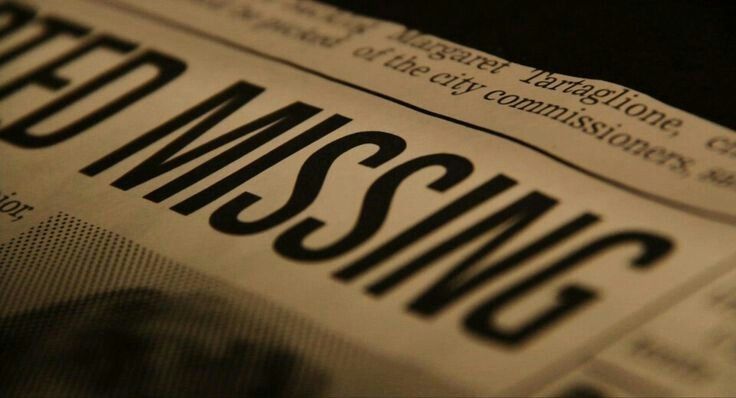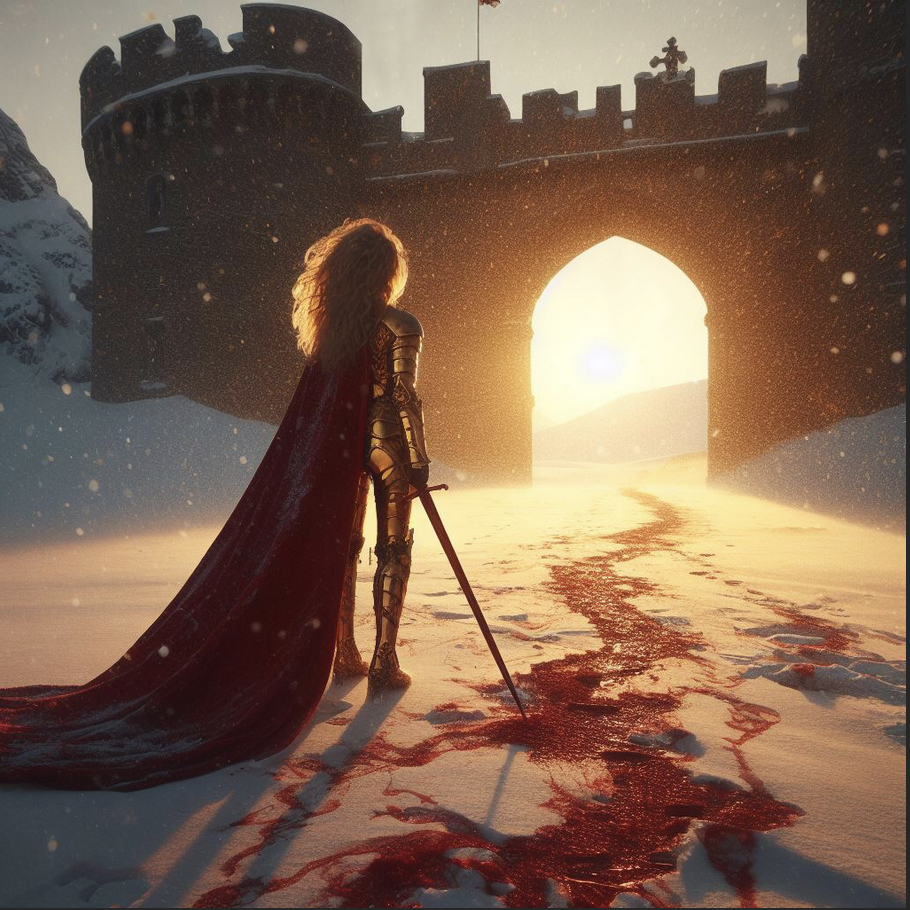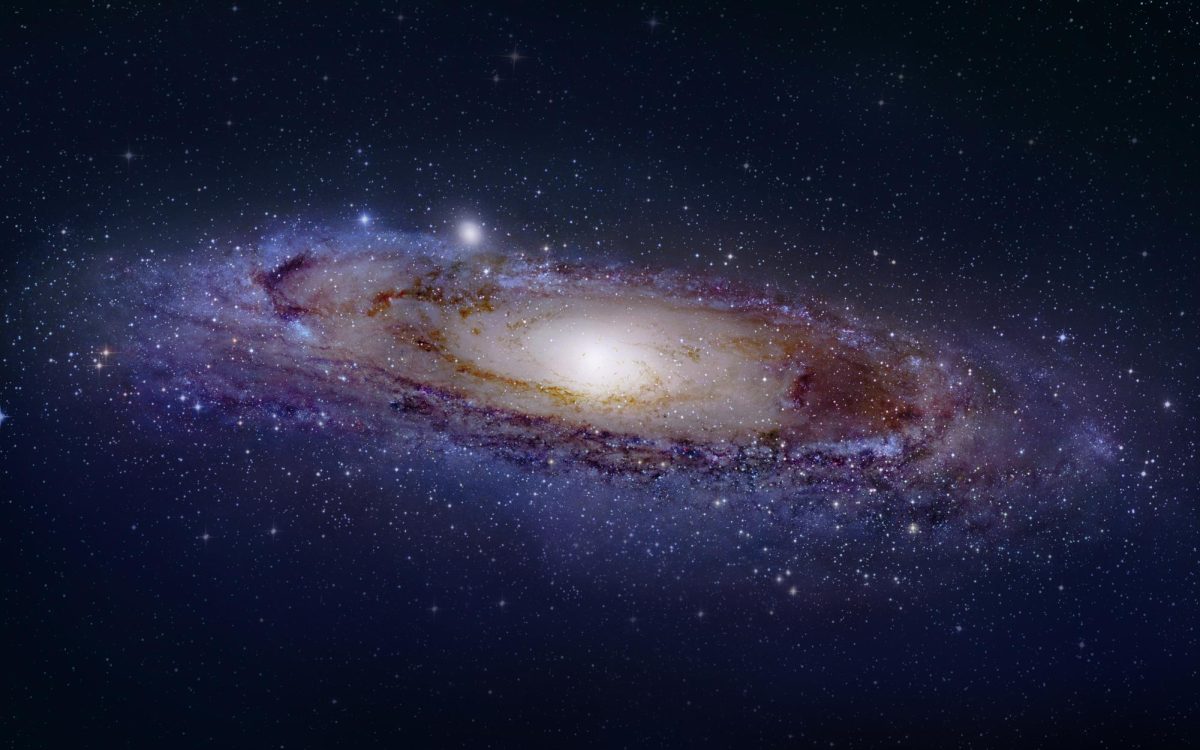I woke to the wail of alarms blaring through the space station.
“Pod 1 malfunction,” a monotone voice repeated over the intercom. “Pod 1 malfunction.”
Still groggy, I pushed myself upright and turned toward the only other pod on the station.
John was inside. Lifeless. His face twisted into a disturbing, bloody grin.
It looked like he’d vomited blood—his whole body was covered in a sea of red. I gagged at the sight, my stomach lurching, but all I could think was: how the hell am I going to clean this up?
Before I could figure out my next move, Mission Control crackled to life.
“Miles? Miles, come in. Do you have your earpiece in?” The operator’s voice sounded tight with concern.
“Yeah… yeah, I’m here. Just a little shaken,” I said, my voice unsteady. “Pod 1’s down. John’s… dead. But it wasn’t the pod. There’s blood everywhere. Something else happened.”
“That’s… odd. The only way a pod malfunction could cause death would be suffocation,” the operator replied. “Check his pockets. See if you can find anything that explains it. We’ll investigate the pod systems from our end.”
“Okay. I’ll let you know if I find anything,” I said, trying to pull myself together.
I checked John’s pockets. Nothing. Then I started searching the rest of the station, retracing the places I’d seen him yesterday. It wasn’t until I reached the dining area that I noticed something strange: an open packet floating in the air, with a white, powdery substance still inside.
Given how John died, it had to be poison.
But there’s no one else here. I didn’t do it. That only leaves one possibility: he poisoned himself. But… why? Unless he completely lost it, this doesn’t make sense.
I went through his belongings and found something unexpected—a journal.
At first, it read like a normal diary, entries from his childhood. But then it spiraled—pages filled with meaningless strings of numbers. The only clear text was two words and two dates: “Poison.” “Fire.” 07/01/10. 07/15/10.
Today is July 1st. The day he died… by poison.
Does that mean I’m next? And that I’ll die… in a fire?
Panic clawed at my brain as the thought took hold.
“Miles, you there?”
Mission Control’s voice snapped me back.
“Miles, respond.”
“I’m here,” I said, now cold and distant. “I found the cause of death. It was poison.”
“What? That can’t be right… you didn’t—”
“No,” I interrupted. “Check the security footage. You won’t see anything suspicious. And I know there aren’t any cameras in the pod room, so I’ll show you the body myself.”
I suited up, returned to the pod room, and turned the camera toward John’s corpse—his frozen grin still stretched wide.
“My god,” the operator whispered. “It’s like… it’s like he wanted this to happen.”
The suspicion in their voices vanished after that.
A few moments later, they came back on the line.
“Miles, we need you to place John’s body in the preservation bag. It’ll keep him stable, let gases escape, and make transport easier. It’s for his family.”
I let out a long breath. “Understood. I’ll let you know when it’s done.”
I slid John’s still-warm body into the bag, sealed it, and loaded it into the compartment built into the wall. The system released it to the exterior of the station, where it hung in space, untouched—retrievable only from the outside.
“Hey, mission control, I just finished up on my end,” I said, slightly out of breath.
“Alright, let us know if anything happens. We’re sending people to come and get you, they should be there on the 15th.”
“The 15th?” I said, caught off guard and voice shaky. “Are you sure they’ll arrive on the 15th?”
“Yes, miles, one hundred percent. Is there a problem with that?” There was no way I would tell them about what I found in that journal. They wouldn’t believe me.
“Nope. No problem at all.”
Everything me and John brought onto the ship was weighed and fully accounted for. So how was he able to get this on board without them noticing the journal? If they saw what was inside they would’ve kept him from going into space to begin with.
I sat in the silence of the control room, the only sound the faint hum of the station’s life support systems. My hands trembled as I held the journal, the weight of it far heavier than I expected. I had to look through it again. I needed answers. There had to be something more—something I missed.
I flipped to the beginning of the journal, starting at the first log. It was John as a kid, in the dead of night. He wrote that he was looking up at the stars with his father, admiring the view of the stars. He described how his father would take him outside in the stillness of the night, the cold air biting at their skin, as they looked up at the endless void. His father would point to the stars, telling him that space was more than just darkness—it was a place of endless possibilities. They would lie there together, side by side, in awe of the constellations, the silence between them filled only by the sound of their breaths. His father spoke about the future with such certainty, as if they were meant to be part of it, to explore the stars. John would always listen, wide-eyed, and believe that one day, he too would journey among the stars. It was a dream that seemed so far away, yet so close at the same time. John at the end of the legible writing says that he saw a blue star through his father’s telescope. He zoomed in on it and then focused on the star. He describes it as a beautiful blue. John goes to sleep that night then that’s it. The rest of the journal has numbers and each page I flip through becomes more and more panicked and frantic. I pondered and pondered until it was about time to head to bed. Looking through utter nonsense and constantly thinking had taken all the energy out of me, I needed sleep.
3 days after I started looking at the journal, I took a break. It was exhausting, and the lack of a companion took a toll on me. We may not have been friends, but it was still someone to talk to. NASA doesn’t pick people based on compatibility or friendliness with one another, it’s how well they work as a team, whether that be one other person or a group of people. As the loneliness started to hit me, my thoughts were interrupted by a tapping on the exit door for spacewalks. I thought that was off, the vacuum of space doesn’t allow sound to travel. The force behind the taps must’ve been precise, and to add to my unease, the noise was rhythmic. It was creeping me out.
“Hey, mission control, you there?” I said.
“Yes, Miles we’re here, what’s wrong?”
“I hear tapping on the exterior of the space station. Can you check the cameras?”
“That’s close to impossible. But we can if it’ll make you feel better.” A couple of minutes went by before responded again. “We’ve picked up no motion on the cameras, are you okay Miles?”
“Yeah, I’m good, sorry for wasting your time,” I say, disheartened.
Today is the day the book said I would die, and the day I get taken up by the rescue group. I made sure everything was in place and that nothing could go wrong. At least I hope.
“Miles, come in. Do you copy?”
The voice from Mission Control jolted me upright. My heart thundered in my chest.
“I’m here,” I said, trying to keep calm. “Is it time?”
There was a pause—only a second or two, but it felt like an eternity.
“Affirmative. Shuttle Odyssey has docked. You’ll need to initiate EVA protocol and make your way to the airlock. Everything looks nominal from our end. They’re ready for you.”
I let out a breath. “Copy that,” I said. “Suiting up.”
As I locked each seal of my suit, my thoughts kept drifting to John’s journal. Poison. Fire. The words burned in my mind. This was supposed to be the day I died. But I felt no heat, no smoke, no suffocating blaze. Just silence and the rhythmic hiss of the oxygen feed in my helmet.
Still, something didn’t feel right.
I clipped the tether to my belt, climbed through the pressurized hatch, and stepped out into the void. The Earth spun silently below, majestic and uncaring. The Odyssey floated nearby, its blinking lights like distant stars in the dark.
But instead of heading straight to the docking arm, I turned my body toward the back of the station—toward the compartment where we’d stored John.
“Miles?” Mission Control’s voice buzzed in my helmet. “You’re off-course. What’s going on?”
“I just want to check something first,” I replied, as calmly as I could muster. “I’ll only be a minute.”
“We strongly advise against that. The recovery team is on a schedule—”
“I said I’ll only be a minute,” I snapped, more harshly than intended. Then, quieter: “I have to see.”
The compartment was right where we left it—a small retrieval hatch jutting out from the station’s side. I activated the release. The panel hissed and retracted slowly.
The body bag floated outward slightly, attached by a thin tether. I reached out and pulled it closer.
I braced myself.
But what I saw was… wrong.
John’s body was still inside the preservation bag—but it had changed.
The once-bloody corpse was now frozen solid, his skin an icy shade of pale blue. Crystals of blood had formed into jagged, translucent spikes across his arms and face. His mouth, still curled in that dreadful grin, now glittered with frost, and where the blood once soaked his suit, sharp icicles jutted outward like knives. The frigid vacuum of space had preserved him, but it had transformed him into something like a child’s nightmare.
I stared, heart pounding, unable to look away. I’d half expected the bag to be empty, or worse—to find it torn open, John gone. But he was still here.
Dead.
Still dead.
I let out a shaky breath and started to push the bag back into the hatch—when something twitched.
My heart stopped.
A finger moved. Then an arm.
I froze, mind screaming at me to let go, to shove the bag into the void, to run—but I was tethered. There was nowhere to run.
The body bag shuddered violently. Then it burst open.
John lunged.
His body—no, this thing—had mutated. Frost and blood fused into a glimmering, jagged armor. I could see what used to be John’s face, but now it was contorted, half-frozen, and covered in shimmering ice shards. His eyes no longer held any humanity—just a glowing blue fire, flickering behind layers of frost. Massive icicles jutted from his arms like claws, and he moved with jerky, unnatural precision, his limbs stiff but terrifyingly strong.
“MILES! WHAT’S HAPPENING?!” Mission Control’s voice roared into my helmet.
“HE’S ALIVE—NO, IT’S ALIVE!” I shouted, struggling as John—or what used to be John—clawed at me.
The jagged ice tore at my suit, one shard grazing my shoulder. Alarms screamed in my ears as oxygen hissed out in a fine mist.
“Seal breach! Seal breach!” the automated voice in my helmet echoed.
I kicked hard, spinning us both in the void. He reached again, icicle-tipped hands slicing through the air. I used the tether to swing around him, catching his shoulder with my boot, and he spun backward, giving me just enough space.
With all the force I could muster, I kicked—hard—square in his chest.
John’s body flew backward, the tether snapping.
He was sent hurtling toward Earth.
I floated, gasping, shaking, staring as the blue, icy creature that had once been my crewmate shrank in the distance, descending rapidly.
“Miles—MILES!” Mission Control’s voice cut through the static. “Are you okay?! What happened?! We saw something—some movement—we thought you were being attacked!”
“I was,” I said, breathless. “It was John… he changed. He… he tried to kill me.”
“What? That’s not possible. John was—”
“I know what I saw!” I shouted, my voice cracking. “I kicked him. He’s falling toward Earth.”
Silence.
Then, slowly, a chilling thought coalesced in my mind.
Poison.
Fire.
My eyes widened.
I turned back toward Earth. Through the shimmering atmosphere, a faint, burning streak began to form.
John’s body was entering the atmosphere.
Flames engulfed the blue corpse, the icy armor igniting, melting, burning. The fire consumed him, a blazing comet of death falling through the sky.
And in that moment, I understood.
It wasn’t my fire the journal spoke of.
It was his.
The final entry wasn’t a warning.
It was a prophecy.
I floated in silence, Earth below me, the beast that had haunted the void reduced to a trail of flame.
“…Miles?” Mission Control said. “Is it over?”
I didn’t answer for a moment. Then I said quietly:
“Yeah. It’s over.”
At least, I hoped it was.









